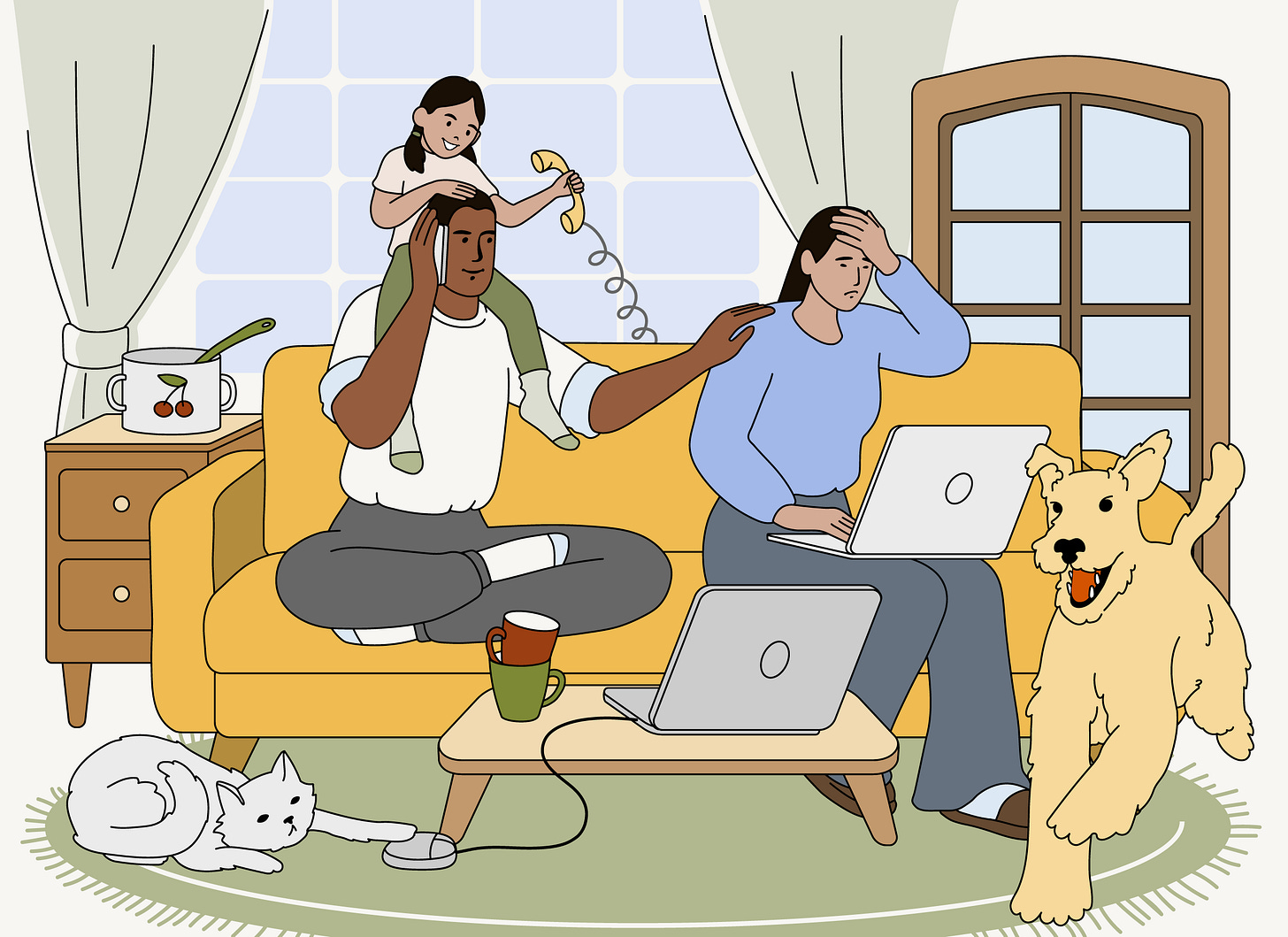
When I was growing up in the early 2000s, the number one question people would ask me is, “What do you what to be when you grow up?”
And to that, I said, “I don’t know.” Because I honestly didn’t know. I remember doing an assignment in elementary school where students would pick a sheet of paper with a person to color in based on what profession they wanted when they got older. Some kids drew their figure as teachers, astronauts, or construction workers.
What did I draw? Again, I don’t remember. But I remember getting my crayons and my little figure and having extreme anxiety over who I wanted to draw. What did I want to be?? Should I be a doctor, a surgeon, or a writer? My 10-year-old self really thought I had to pick not just a job, but an identity right then.
And it’s true. Our jobs tend to be our identities. If someone asks you, “What do you do for a living?” Most people will say what they do as a job or what feels like a job. “I’m a pediatrician, engineer, accountant, student, nurse, etc.” Less people are likely to say, “I’m a mom, dad, pet owner, TV fanatic, book lover, or video game junkie.”
Our jobs infiltrate our lives so much that you may have heard in the news that former Google employees are staging protests over being laid off for seemingly no reason, or that 80,000 people have been cut from their jobs.
It’s bringing to light the reality that our jobs aren’t as secure as we thought. Even if you work in a huge corporation like Google, you’re most likely looked at as a line item on a long list of employees bringing in profit and value. Which, in my opinion, isn’t great. Employees are people, not items in a list.
So, what does this really mean? Are we too obsessed with our jobs? Should we step back and see if we can create a life where our jobs aren’t our livelihood?
Does job security still exist?
If your parents grew up in the 1950s, chances are that they had a solid job up until retirement. Everything felt more stable.
But because people believed that their livelihoods depended on their job, people would often work up to 70 hours a week in a job that gave them health insurance, a (very high) income, and most of all, security.
Now the job market seems so chaotic. There’s no such as job security anymore. You’ll hear about layoffs every year in different industries, with the conversation the same- “I worked for XX number of years in a job with dedication and passion, only for the company to log me off/send a letter/email me a note saying I’m laid off and need to leave the same day.”
It shouldn’t be this way, but it is. And it happens too often.
Marti Konstant, workplace futurist and author of Activate Your Agile Career, says in her blog that when it comes to a job, what really what wins is your mindset, not what your employer thinks of you.
Navigating your current job can be compared to taking a river ride. In these times, you have to pivot and adjust to avoid taking turns towards dangerous conditions (aka a toxic job) and row back to safety.
Once people can accept that the job market is dynamic and winding, then we can sigh and say, “Yeah, my boss isn’t in charge of my life.”
Discovering a life outside of work
People say this A LOT, but our work doesn’t have to define everything that we are. At the end of the day, we’re still people. Our jobs aren’t the means to an end, and our value isn’t tied to our productivity.
We deserve to be creative and find something that doesn’t make us stressed. Our perceptions of ourselves and our boundaries are so important to separate the work you from the real you, the non-corporate you.
For some people, it’s riding horses. For some, it’s crafting six feet long quilts inside their home.
Some other ways to find our own identity is:
Watching the types of shows and movies you’ve always loved.
Talking to people you like (NOT your boss) and enjoying their time.
Discovering your values, and how you’d like to spend your time.
It’s different for everyone. But our hobbies don’t have to be our work. We deserve to be human.



